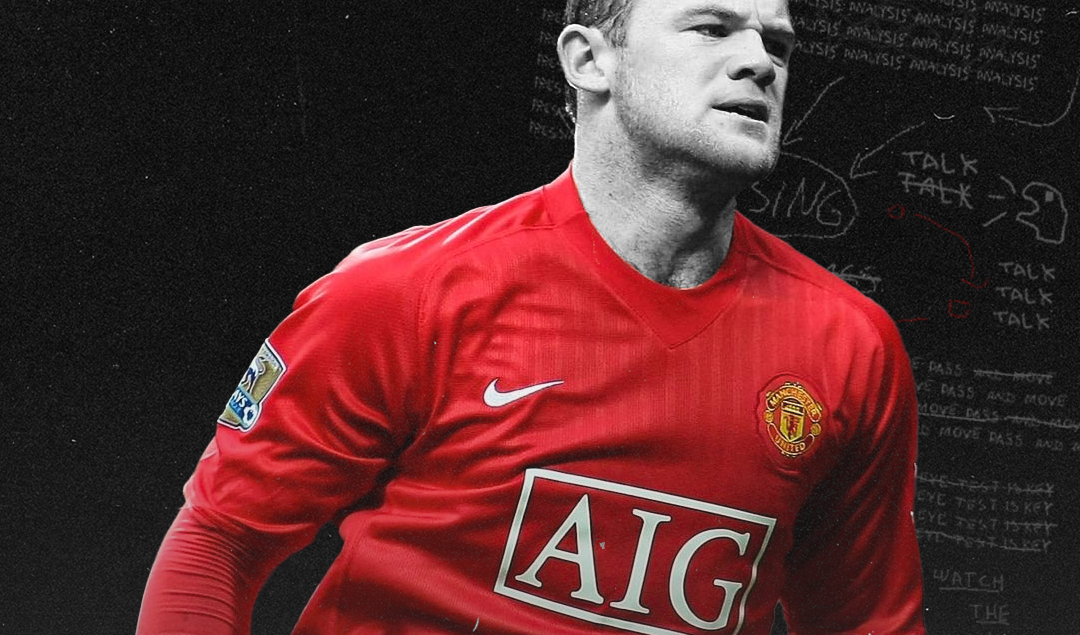Wayne Rooney: The Street Footballer who Dazzled the Stretford End
“Remember the name! Wayne Rooney!” bellowed Clive Tyldesley as a young 16-year-old born and bred scouser scored his first Premier League goal.
How did the teenager in question celebrate such a big moment? By playing football with friends in the street. Of course he did.
That summed up Wayne Rooney as a footballer. Enigmatic yet effervescent. The street footballer from the Mersey arrived in Manchester on deadline day on 2004.
He was the world’s most expensive teenager at the time and the eyes of the worlds media gazed upon him and Sir Alex Ferguson on a gloriously sunny day at Old Trafford. “I am very excited. I think we have got the best young player this country has seen in the past 30 years,” Ferguson said of Rooney’s arrival.
High praise indeed. But could the boy wonder live up to the hyperbole surrounding him? He arguably answered that question in just 54 minutes as a United player. He produced a sublime free-kick to become the youngest footballer – at 18 years and 335 days – to score a Champions League hat-trick. A dream start.
Along with fellow up-and-coming superstar Cristiano Ronaldo, he was to become an invaluable cog in a Manchester United machine that was being rebuilt by Sir Alex Ferguson in the aftermath of United greats Roy Keane and Ruud Van Nistelrooy.
Rooney and United of his initial arrival had to bide their time to make a true and lasting impact on domestic and European levels of the game. His first season with the club ultimately ended trophyless but signs were there that he and United were gradually heading in the right direction.
In his second season – 2005/06, the league cup was won by the team in a final that he netted a brace and individually he won the coveted PFA young player of the year award. The cogs in the newly rebuilt United machine were finally close to building the momentum to create new memories.
The next six seasons for Rooney and United as a whole were to be nothing short of spectacular. Five premier league trophies were secured, the champions league trophy returned to the Old Trafford trophy room in addition to the league cup and the world cup championship.
Despite spectacular success on the pitch for Rooney and United during this period, there was also a chink of doubt placed upon Rooney by the submission of a transfer request in 2010.
Rooney cited that he was worried that the club weren’t being ambitious enough in the transfer market and an unthinkable move across the city to noisy neighbours Manchester City was mooted.
Understandably, a player publicly questioning Manchester United and stating a desire to leave the football club caused anger among an element of fans that may never have been repaired especially when you compare him with traditional one club men like Gary Neville, Paul Scholes and Ryan Giggs.
However, Rooney signed a bumper new contract and remained at the club until 2017 and added the FA Cup, Europa League and another League Cup to his name in the post Sir Alex Ferguson era. In that time he also became the record goal scorer in the history of Manchester United and England.
Both feats that had been held by Sir Bobby Charlton – true icon of the global game and of Manchester United in his own right – for decades.
He may well be the last of the English street footballers but in his prime he was a joy to behold at Old Trafford and his place is already enshrined in the history books. 253 Manchester United goals, five Premier League titles, a Champions League, three League Cups, one FA Cup and a Europa League. Not bad at all for a boy from Croxteth. The boy from the Mersey certainly made his mark on Manchester.
“Remember the name, Wayne Rooney!” United fans certainly won’t forget the memories and Wayne will undoubtedly be remembered for forever in Manchester United folklore.
By: Callum McFadden / @Callum7McFadden
Featured Image: @GabFoligno / Matthew Peters / Man United
